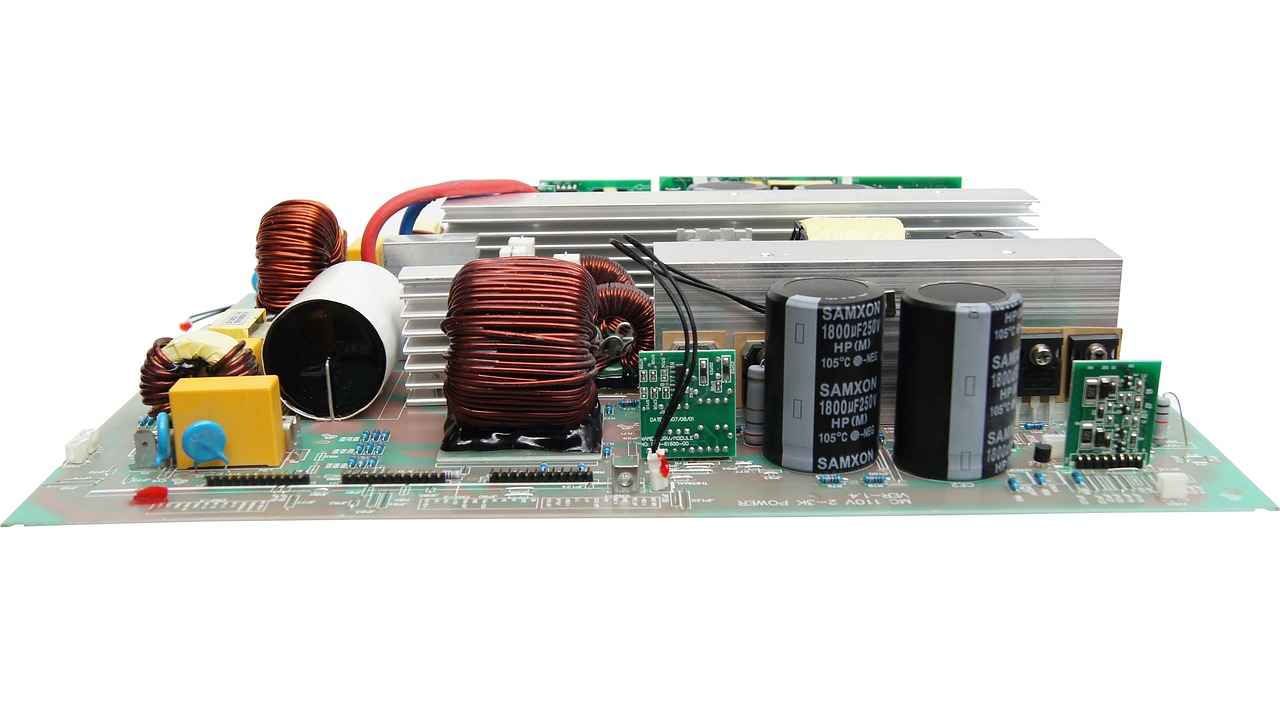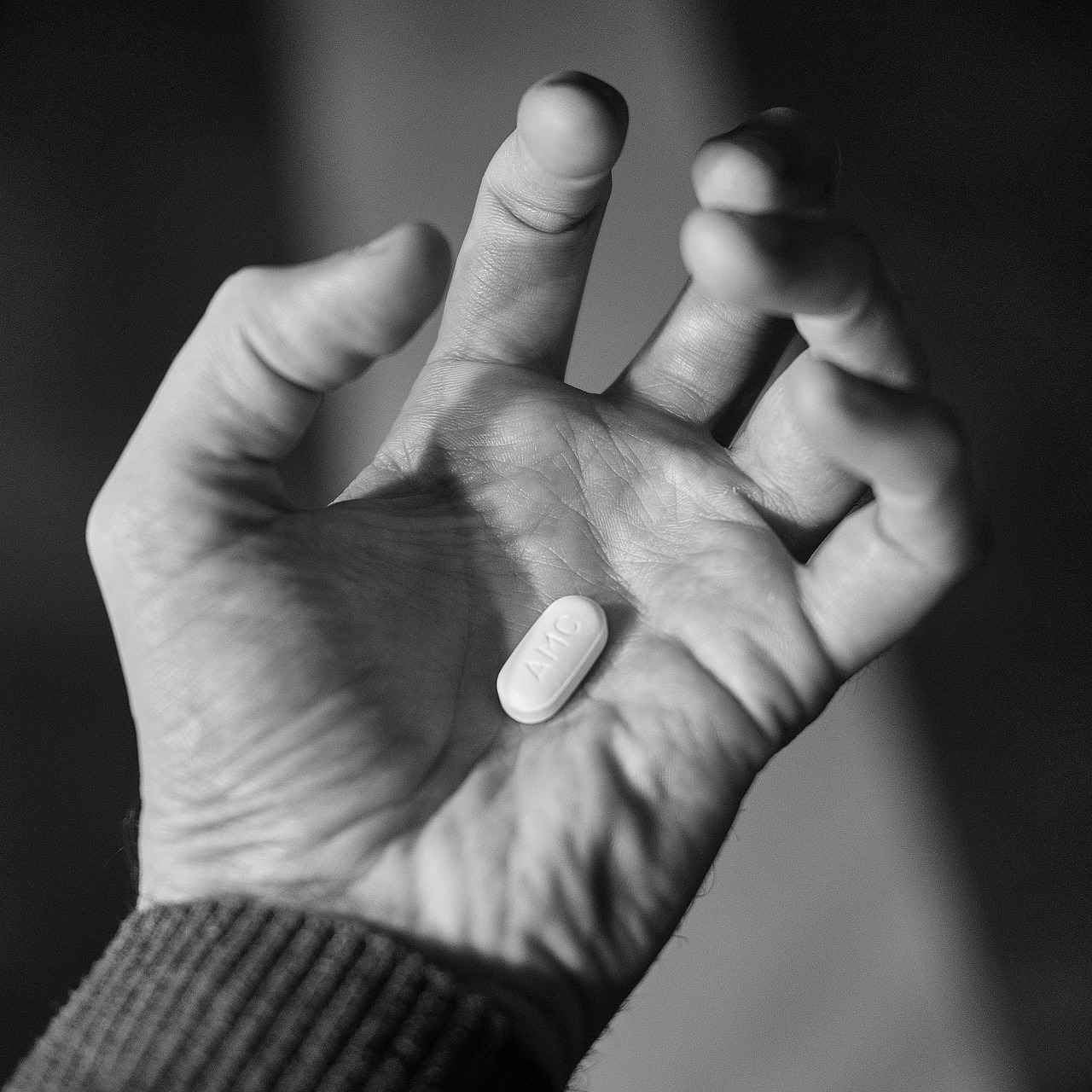This article delves into the critical role that electrolyte supplements play in maintaining muscle hydration, enhancing athletic performance, and preventing fatigue during physical activities. Understanding how to properly hydrate can significantly impact your overall fitness journey.
What Are Electrolytes?
Electrolytes are essential minerals that carry an electric charge, necessary for various physiological functions in the body. These include sodium, potassium, calcium, and magnesium. For athletes and fitness enthusiasts, comprehending the role of electrolytes in muscle hydration is vital for optimal performance.
Why Hydration Matters for Muscle Performance
Proper hydration is crucial for muscle function, endurance, and recovery. When you exercise, your body loses fluids through sweat, and replenishing these fluids is necessary to maintain performance levels. Dehydration can lead to decreased strength and endurance, making it essential to stay hydrated.
Effects of Dehydration on Muscle Function
Dehydration can result in muscle cramps, fatigue, and diminished strength. The physiological effects of dehydration can significantly impact an athlete’s performance and overall health.
Signs of Dehydration
- Thirst
- Dark yellow urine
- Dry mouth
- Fatigue
Recognizing these early signs is essential for athletes to prevent performance decline.
How Electrolytes Support Hydration
Electrolytes help maintain fluid balance in the body, which is crucial for muscle hydration and recovery. They assist in regulating nerve function and muscle contractions, making them indispensable during physical activities.
Types of Electrolyte Supplements
There are various electrolyte supplements available, including:
- Sports drinks
- Electrolyte tablets
- Powdered mixes
Each type has unique benefits and can be chosen based on individual needs.
When to Use Electrolyte Supplements
Timing is crucial for maximizing the benefits of electrolyte supplements. It is important to hydrate before, during, and after workouts to ensure optimal performance and recovery.
Conclusion: Enhancing Performance with Electrolytes
In conclusion, electrolyte supplements are key to supporting muscle hydration and enhancing athletic performance. Understanding their role can lead to better hydration strategies and improved overall health.

What Are Electrolytes?
Understanding Electrolytes: The Key to Muscle Hydration
Electrolytes are essential minerals found in the body that carry an electric charge. These minerals, such as sodium, potassium, calcium, and magnesium, play a vital role in various bodily functions, including muscle contraction, nerve signaling, and maintaining fluid balance. For athletes and fitness enthusiasts, a solid grasp of electrolytes and their impact on muscle hydration is crucial for optimizing performance and recovery.
Why Are Electrolytes Important?
Electrolytes help regulate hydration levels within the body, ensuring that muscles receive the necessary fluids to function effectively. During intense physical activity, the body loses electrolytes through sweat, which can lead to dehydration and impaired performance. Understanding the balance of these minerals is essential for anyone engaged in regular exercise.
How Electrolytes Aid in Muscle Hydration
When you exercise, your body sweats to cool down, leading to a loss of both water and electrolytes. This loss can result in muscle cramps, fatigue, and decreased strength if not replenished. Electrolytes help maintain fluid balance in the cells, ensuring that muscles remain hydrated and functional. They also support nerve function, which is critical for muscle coordination and performance.
Sources of Electrolytes
- Sports Drinks: Formulated to replenish electrolytes lost during exercise.
- Electrolyte Tablets: Convenient options for on-the-go hydration.
- Natural Foods: Foods like bananas, oranges, spinach, and yogurt are rich in essential electrolytes.
Conclusion
In summary, understanding what electrolytes are and their role in muscle hydration is vital for enhancing athletic performance. By incorporating proper electrolyte sources into your diet and hydration strategy, you can ensure optimal muscle function and recovery.

Why Hydration Matters for Muscle Performance
Proper hydration is crucial for optimal muscle function, endurance, and recovery. When engaging in physical activities, the body’s demand for water increases significantly. This section delves into the profound impact hydration has on performance and the potential risks associated with dehydration during exercise.
Water is essential for various physiological processes, including thermoregulation, nutrient transport, and waste removal. During exercise, muscles generate heat, and sweating is the body’s primary mechanism for cooling down. However, excessive sweating without adequate fluid replacement can lead to dehydration, which can severely impair performance.
Dehydration can result in several negative effects on muscle performance, including:
- Decreased Strength: Even mild dehydration can lead to a noticeable decline in strength and power output.
- Increased Fatigue: A lack of fluids can accelerate the onset of fatigue, making it difficult to sustain prolonged exercise.
- Muscle Cramps: Dehydration is a common cause of muscle cramps, which can hinder performance and lead to injury.
Recognizing the signs of dehydration is essential for athletes. Common symptoms include:
- Thirst
- Dry mouth
- Fatigue
- Dizziness
Long-term dehydration can lead to serious health issues, including kidney stones and urinary tract infections. Therefore, maintaining adequate hydration before, during, and after exercise is vital for overall health and muscle performance.
In conclusion, hydration is a key factor that influences muscle function and athletic performance. Athletes should prioritize fluid intake to optimize their training and recovery processes.
Effects of Dehydration on Muscle Function
Understanding the Effects of Dehydration on Muscle Function
Dehydration is a significant concern for anyone engaged in physical activities, especially athletes. When the body loses more fluids than it takes in, it can lead to a series of detrimental effects on muscle function. This section delves into how dehydration impacts muscle performance and overall health.
- Muscle Cramps: One of the most immediate effects of dehydration is the occurrence of muscle cramps. These involuntary contractions can be painful and hinder performance.
- Fatigue: Dehydration can lead to early onset of fatigue. When the body is not adequately hydrated, energy levels drop, making it difficult to sustain prolonged physical activity.
- Decreased Strength: Muscle strength is significantly compromised when hydration levels are low. Studies show that even a small percentage of fluid loss can reduce strength and endurance.
- Impaired Thermoregulation: Proper hydration is essential for regulating body temperature. Dehydration can impair the body’s ability to cool itself, increasing the risk of heat-related illnesses.
- Reduced Coordination: Lack of proper hydration can affect motor skills and coordination, increasing the likelihood of injuries during physical activities.
In addition to these immediate effects, chronic dehydration can lead to long-term health issues. It can affect kidney function, lead to urinary tract infections, and contribute to cardiovascular problems. Therefore, staying hydrated is crucial not only for muscle performance but also for overall health and well-being.
In conclusion, the physiological effects of dehydration on muscle function are profound and multifaceted. By understanding these impacts, athletes can take proactive steps to ensure proper hydration, thereby enhancing performance and safeguarding their health.
Signs of Dehydration
Recognizing the early signs of dehydration is crucial for athletes to maintain optimal performance and health. Dehydration can occur rapidly during intense physical activity, especially in hot and humid conditions. By being aware of the symptoms, athletes can take proactive measures to prevent a decline in performance.
- Thirst: One of the first signs of dehydration is an increased feeling of thirst. If you find yourself constantly reaching for water, it’s a clear indication that your body needs hydration.
- Dry Mouth: A dry or sticky feeling in the mouth can indicate that your body is low on fluids. This symptom often accompanies thirst.
- Dark Urine: The color of your urine can be a reliable indicator of hydration levels. Dark yellow or amber urine typically suggests dehydration, while light yellow indicates proper hydration.
- Fatigue: A sudden drop in energy levels or increased feelings of tiredness can be a sign of dehydration. When the body lacks sufficient fluids, it struggles to perform optimally.
- Dizziness or Lightheadedness: Dehydration can lead to a decrease in blood volume, causing feelings of dizziness or lightheadedness, especially when standing up quickly.
- Muscle Cramps: A common symptom of dehydration, muscle cramps can occur due to an imbalance of electrolytes and insufficient hydration.
- Headaches: Dehydration can trigger headaches or migraines as the brain temporarily contracts and pulls away from the skull.
By paying attention to these signs, athletes can take immediate action, such as increasing fluid intake and consuming electrolyte-rich drinks, to prevent further complications. Early intervention is key to maintaining performance and avoiding the adverse effects of dehydration.
Conclusion: Being vigilant about the signs of dehydration is essential for athletes. By recognizing these symptoms early, athletes can ensure they remain hydrated and perform at their best.
Long-term Effects of Chronic Dehydration
Chronic dehydration is often underestimated, yet its long-term consequences can be profoundly detrimental to both muscle performance and overall health. Understanding these effects is crucial for anyone engaged in physical activity, as well as for those who wish to maintain optimal health.
When the body is consistently deprived of adequate hydration, several physiological changes occur. Over time, the lack of water can lead to muscle deterioration, affecting strength and endurance. Muscles require sufficient fluid to function correctly, as water is essential for nutrient transport and waste removal. Without it, muscle recovery is impaired, leading to increased fatigue and a higher risk of injury.
Moreover, chronic dehydration can contribute to kidney stones and urinary tract infections. The kidneys rely on adequate hydration to filter waste effectively. Insufficient fluid intake can lead to concentrated urine, which increases the likelihood of stone formation. Additionally, it can cause the body to retain more sodium, leading to high blood pressure over time.
Another significant concern is the impact on cognitive function. Dehydration has been linked to decreased concentration, mood swings, and overall mental fatigue. This can be particularly problematic for athletes who need to maintain focus during competitions.
To mitigate these risks, it is essential to prioritize hydration. Consuming fluids regularly throughout the day, especially before, during, and after exercise, can help maintain optimal hydration levels. Incorporating electrolyte supplements can also be beneficial, as they assist in retaining fluid and replenishing lost minerals.
In conclusion, the long-term effects of chronic dehydration extend beyond immediate physical performance issues. By understanding these consequences, individuals can take proactive steps to ensure they remain adequately hydrated, supporting both their muscular health and overall well-being.
How Electrolytes Support Hydration
Electrolytes are vital for maintaining fluid balance in the body, particularly during physical activities. They are minerals that carry an electric charge and are essential for various physiological functions. Among their many roles, electrolytes are crucial for muscle hydration and recovery, making them a key component for athletes and fitness enthusiasts.
When you exercise, your body loses fluids through sweat, which can lead to an imbalance of electrolytes. This imbalance can result in muscle cramps, fatigue, and decreased performance. Electrolytes help regulate the amount of water in your body and ensure that your muscles function optimally. They play a significant role in nerve function, muscle contractions, and maintaining acid-base balance.
| Electrolyte | Function | Sources |
|---|---|---|
| Sodium | Regulates fluid balance | Salt, processed foods |
| Potassium | Supports muscle contractions | Bananas, oranges, potatoes |
| Calcium | Essential for muscle function | Dairy products, leafy greens |
| Magnesium | Helps with muscle relaxation | Nuts, seeds, whole grains |
Incorporating electrolyte supplements can significantly enhance muscle hydration and recovery. These supplements can be especially beneficial during prolonged exercise or in hot weather, where fluid loss is more pronounced. Sports drinks, electrolyte tablets, and natural food sources can all contribute to maintaining electrolyte levels.
To maximize the benefits of electrolytes, it is essential to consume them before, during, and after workouts. Pre-workout hydration strategies can include drinking an electrolyte-rich beverage to prepare the body for exercise. Post-workout, replenishing lost electrolytes aids in recovery and reduces muscle soreness.
In summary, understanding how electrolytes support hydration is crucial for anyone engaged in physical activity. By ensuring adequate electrolyte intake, athletes can improve their performance, enhance recovery, and maintain overall health.

Types of Electrolyte Supplements
Electrolyte supplements come in various forms, each tailored to meet specific hydration needs and preferences. Understanding the different types can help individuals choose the most suitable option for their lifestyle and activity level. Below is an overview of popular electrolyte supplements and their unique benefits:
- Sports Drinks: These beverages are designed to replenish fluids and electrolytes lost during exercise. They typically contain carbohydrates for energy, making them ideal for endurance athletes. However, they may also contain added sugars, which can be a downside for those monitoring their calorie intake.
- Electrolyte Tablets: A convenient option for on-the-go hydration, electrolyte tablets can be dissolved in water to create a refreshing drink. They are often low in calories and sugar, making them a great choice for those looking to avoid excess sugars while still replenishing essential minerals.
- Powdered Electrolytes: Similar to tablets, powdered electrolyte supplements can be mixed with water. They come in various flavors and formulations, allowing for customizable hydration solutions. These powders often contain a blend of electrolytes tailored to specific needs, such as muscle recovery or endurance support.
- Natural Electrolyte Sources: Foods such as bananas, spinach, and coconut water are excellent natural sources of electrolytes. Incorporating these foods into your diet can provide a healthy, balanced way to maintain electrolyte levels without relying solely on supplements.
- Electrolyte Gels: Often used by endurance athletes, these gels provide a quick source of hydration and energy. They are easy to carry and consume during long workouts, making them a popular choice for runners and cyclists.
Choosing the right electrolyte supplement depends on individual needs, activity levels, and personal preferences. Whether you prefer the convenience of tablets or the taste of sports drinks, there is an option available to support your hydration needs effectively.
Sports Drinks vs. Electrolyte Tablets
Choosing the right electrolyte supplement is essential for athletes aiming to enhance their performance and maintain hydration. This section delves into the advantages and disadvantages of sports drinks and electrolyte tablets, two popular options available in the market.
| Criteria | Sports Drinks | Electrolyte Tablets |
|---|---|---|
| Hydration Speed | Quickly replenishes fluids due to liquid form. | Effective but requires water for dissolution. |
| Caloric Content | Often contains sugar, adding calories. | Generally low in calories, ideal for weight management. |
| Convenience | Ready to drink, but can be bulky to carry. | Compact and easy to transport; just add to water. |
| Flavor Variety | Available in numerous flavors, appealing to taste preferences. | Limited flavors, but can be mixed with any beverage. |
| Cost | Can be more expensive per serving. | Typically more cost-effective over time. |
Pros of Sports Drinks:
- Immediate hydration due to liquid form.
- Contains carbohydrates for energy during prolonged activities.
Cons of Sports Drinks:
- Higher sugar content can lead to weight gain.
- May cause gastrointestinal discomfort for some athletes.
Pros of Electrolyte Tablets:
- Low in calories, making them suitable for weight-conscious athletes.
- Easy to carry and use, requiring only water for consumption.
Cons of Electrolyte Tablets:
- Requires preparation time, as they must be dissolved in water.
- Some users may find the taste less appealing than sports drinks.
In conclusion, both sports drinks and electrolyte tablets have their unique benefits and drawbacks. Athletes should consider their specific needs, preferences, and activity levels when choosing the right supplement to optimize hydration and performance.
Natural Sources of Electrolytes
Incorporating into your diet can significantly enhance your hydration levels and overall well-being. Electrolytes are essential minerals, including sodium, potassium, magnesium, and calcium, which play a crucial role in maintaining fluid balance and supporting muscle function. Below, we explore various foods that are rich in these vital nutrients, helping you stay hydrated and energized.
| Food Source | Key Electrolytes | Benefits |
|---|---|---|
| Bananas | Potassium | Helps regulate fluid balance and muscle contractions. |
| Spinach | Magnesium, Calcium | Supports muscle function and reduces cramps. |
| Coconut Water | Sodium, Potassium | Natural hydration source, replenishes lost fluids. |
| Avocado | Potassium | Rich in healthy fats and promotes heart health. |
| Yogurt | Calcium, Potassium | Good for gut health and muscle recovery. |
In addition to these foods, consider incorporating electrolyte-rich beverages like homemade sports drinks or herbal teas. These can provide a refreshing way to boost your electrolyte intake, especially after intense workouts.
When planning your meals, aim for a balanced diet that includes a variety of these foods to ensure you’re getting a wide range of electrolytes. This not only aids in hydration but also contributes to your overall health and fitness performance.
In conclusion, focusing on natural sources of electrolytes can be a simple yet effective strategy to enhance hydration and support your active lifestyle. By making informed dietary choices, you can optimize your body’s performance and recovery.

When to Use Electrolyte Supplements
Timing is crucial for maximizing the benefits of electrolyte supplements. Understanding when to consume these supplements can significantly enhance athletic performance and recovery. This section delves into optimal times for consumption, focusing on both workout periods and recovery phases.
To fully reap the advantages of electrolyte supplements, consider the following strategies:
- Pre-Workout: Consuming electrolyte supplements before exercise prepares your body for the physical demands ahead. It is recommended to take them about 30 to 60 minutes prior to your workout. This timing ensures that your body is properly hydrated, allowing for improved endurance and performance.
- During Workouts: For prolonged or intense workouts, sipping on electrolyte drinks can help maintain hydration levels. Aim to consume electrolytes every 15 to 20 minutes during your exercise routine, particularly in hot or humid conditions where sweat loss is greater.
- Post-Workout Recovery: After exercising, your body needs to replenish lost fluids and electrolytes. Consuming electrolyte supplements within 30 minutes post-workout can significantly aid in recovery. This helps to restore electrolyte balance, reduce muscle soreness, and promote faster recovery.
Additionally, it’s important to listen to your body. Factors such as exercise intensity, duration, and environmental conditions can affect hydration needs. If you feel fatigued or dehydrated, it may be beneficial to adjust your electrolyte intake accordingly.
In conclusion, knowing the right timing for electrolyte supplementation can enhance both performance and recovery. By integrating these strategies into your routine, you can ensure optimal hydration and support your athletic goals.
Pre-Workout Hydration Strategies
are crucial for athletes and fitness enthusiasts aiming to maximize their performance during exercise. Proper hydration before a workout can significantly influence endurance, strength, and recovery. This section provides practical tips on how to effectively hydrate using electrolyte supplements.
To begin with, it is essential to understand that electrolytes—such as sodium, potassium, and magnesium—play a vital role in maintaining fluid balance in the body. These minerals help regulate nerve function and muscle contractions, making them indispensable for anyone engaging in physical activities.
Here are some practical strategies for pre-workout hydration:
- Start Early: Begin hydrating at least 2-3 hours before your workout. This allows your body to absorb the fluids and electrolytes effectively.
- Choose the Right Electrolyte Supplement: Opt for supplements that contain a balanced mix of electrolytes. Sports drinks can be beneficial, but be cautious of added sugars. Alternatively, consider electrolyte tablets for a low-calorie option.
- Monitor Fluid Intake: Aim to drink around 500-700 ml of water or an electrolyte solution prior to your workout. Adjust this amount based on your body size, the intensity of exercise, and environmental conditions.
- Incorporate Natural Sources: Foods like bananas, oranges, and spinach are rich in electrolytes. Consuming these before your workout can enhance hydration.
- Listen to Your Body: Pay attention to signs of dehydration, such as thirst, dry mouth, or dark urine. If you experience these symptoms, increase your fluid intake.
In conclusion, implementing effective pre-workout hydration strategies using electrolyte supplements can lead to improved performance and reduced risk of dehydration. By understanding your body’s needs and adjusting your hydration habits accordingly, you can enhance your workout experience.
Post-Workout Recovery
After an intense workout, post-exercise hydration plays a crucial role in recovery. As athletes push their limits, their bodies lose essential fluids and electrolytes, making it vital to replenish what has been lost. This article delves into the significance of electrolyte supplements in aiding muscle recovery and enhancing overall performance.
During exercise, the body loses not only water but also vital minerals such as sodium, potassium, magnesium, and calcium through sweat. These electrolytes are critical for maintaining fluid balance, muscle function, and nerve signaling. When these minerals are depleted, it can lead to fatigue, muscle cramps, and decreased performance.
| Electrolyte | Function | Food Sources |
|---|---|---|
| Sodium | Maintains fluid balance | Table salt, pickles |
| Potassium | Supports muscle contractions | Bananas, oranges |
| Magnesium | Aids in muscle recovery | Nuts, seeds |
| Calcium | Important for muscle contraction | Dairy products, leafy greens |
To effectively support recovery, athletes should consider when and how to use electrolyte supplements. Consuming these supplements within 30 minutes after a workout can significantly enhance recovery. This window is crucial as the body is primed to absorb nutrients and rehydrate.
- Choose the right supplement: Sports drinks, electrolyte tablets, or natural sources can all be effective.
- Monitor hydration levels: Keep track of your fluid intake and adjust based on workout intensity.
- Listen to your body: Pay attention to signs of dehydration, such as fatigue or dizziness.
In conclusion, incorporating electrolyte supplements into your post-workout routine is essential for optimal recovery. By understanding their importance and utilizing them effectively, athletes can enhance their performance and ensure a quicker return to peak condition.

Conclusion: Enhancing Performance with Electrolytes
In the realm of athletic performance, electrolyte supplements play a pivotal role in ensuring that athletes maintain optimal muscle hydration. These essential minerals not only support fluid balance but also enhance overall physical performance. By incorporating appropriate electrolyte strategies, individuals can significantly improve their hydration levels, thereby enhancing their athletic capabilities.
Electrolytes, such as sodium, potassium, calcium, and magnesium, are critical for muscle function and recovery. They help regulate nerve function, muscle contractions, and hydration levels in the body. When athletes engage in intense physical activities, they lose these vital minerals through sweat, which can lead to dehydration and fatigue if not replenished adequately.
Understanding the importance of electrolytes is key to developing better hydration strategies. For instance, consuming electrolyte supplements before, during, and after workouts can help maintain peak performance and prevent the adverse effects of dehydration, such as muscle cramps and reduced endurance. This proactive approach to hydration can lead to improved overall health and athletic performance.
Moreover, athletes should be aware of the various forms of electrolyte supplements available, including sports drinks, electrolyte tablets, and natural food sources. Each option has its own benefits and can be tailored to fit individual needs and preferences. For example, while sports drinks can provide quick hydration, electrolyte tablets offer a convenient and portable solution for on-the-go replenishment.
In summary, the integration of electrolyte supplements into an athlete’s regimen is essential for supporting muscle hydration and enhancing performance. By understanding their significance and implementing effective hydration strategies, athletes can optimize their training and recovery, ultimately leading to better health and improved athletic outcomes.







